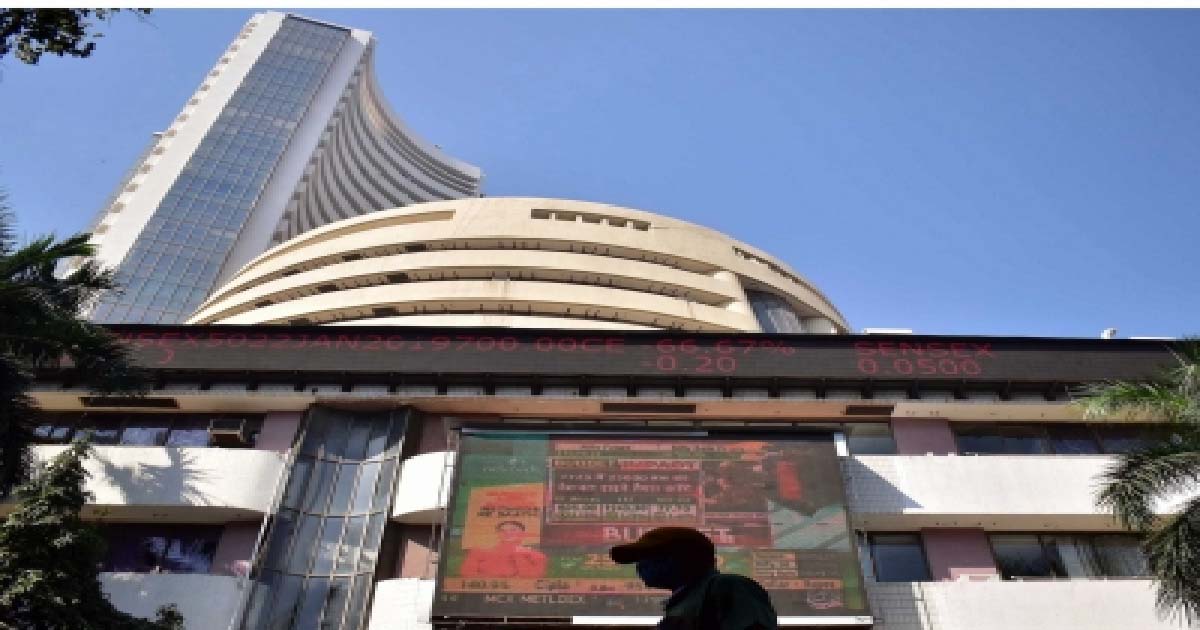Business
IBBI proposes amendments in liquidation norms to increase transperancy

In a bid to increase transperancy in the liquidation process under the Insolvency and Bankruptcy Code (IBC), IBBI has proposed amendments to the regulations.
In a discussion paper, the Insolvency and Bankruptcy Board of India (IBBI) noted that the regulatory framework of liquidation process has been improvised on several occasions during the last five years to address the difficulties faced by stakeholders, meet the evolving requirements and in aid of achievement of objectives of the Code.
“With the emergence of new issues and the gaining of sufficient experience, a need is felt to further strengthen the regulatory framework of liquidation process in terms of accountability of liquidator towards stakeholders and certain matters related to sale,” it said.
The Code and IBBI (Liquidation Process) Regulations, 2016, provide that the liquidator shall carry on the business of the corporate debtor for its beneficial liquidation, exercise all powers of its board of directors, key managerial personnel and the partners, complies with applicable laws on behalf of the firm, among others.
The liquidator exercises the powers in fiduciary capacity to protect the interest of stakeholders and as an officer of the court. The liquidator is expected to imbibe the highest standards of ethics and professionalism while conducting a fair and rule-based liquidation process.
It is pertinent to note that though the liquidator has been empowered with greater autonomy during liquidation process as compared to interim resolution professional (IRP) or resolution professional (RP) during CIRP (corporate insolvency resolution process), the accountability mechanisms are not as robust, IBBI said.
It leads to ineffective participation and dissatisfaction amongst stakeholders, information asymmetry and sometimes even abuse of the process and the effective participation and information symmetry are fundamental to robust supervision and monitoring of the process.
“A need is, therefore, felt to further enhance the accountability of liquidator by enlarging the scope of consultation with stakeholders,” said the discussion paper.
The board was of the view that the expanded and enriched role of Stakeholders’ Consultation Committee (SCC) in terms of mandatory consultation regarding appointment of professionals, sale of assets including fixation of reserve price, among others, is felt necessitated for enhancing accountability of liquidator, stakeholders’ confidence and participation in the process, effective supervision and monitoring, and improved outcomes of the process.
Further, the appropriate checks and balances in appointment of professionals, without curtailing the flexibility of liquidators in such appointments, is apposite to ensure more process transparency and safeguard the interest of the stakeholders.
“It is proposed to provide in the Liquidation Regulations that the liquidator shall consult SCC for all significant matters related to liquidation process, including appointment of professionals (and their remuneration), and sale of assets (including major aspects such as fixation of reserve price, manner of sale, etc),” it said.
The discussion paper has also proposed to provide in the Liquidation Regulations that if the secured creditors having 60 per cent of the value in the secured debt decide to relinquish or realise the security interest, such decision shall be binding on the other ‘pari-passu’ charge holders, who are on an equal footing.
“The proposals in the preceding paragraphs aim at achieving the objectives of the Code by expediting the liquidation process and balancing the interest of all stakeholders. This is issued in pursuance to regulation 4 of the Insolvency and Bankruptcy Board of India (Mechanism for Issuing Regulations) Regulations, 2018,” it said.
Public comments on the proposals have been sought by September 17.
Business
Indian Hotels clocks 48.6 pc drop in Q2 net profit to Rs 285 crore

Mumbai, Nov 4: Tata Group’s hospitality arm, Indian Hotels Company Limited (IHCL), on Tuesday reported a 48.6 per cent year-on-year (YoY) drop in net profit to Rs 285 crore for the quarter ended September 2025 (Q2 FY26).
The company had posted a profit of Rs 555 crore in the same quarter last financial year (Q2 FY25), according to its stock exchange filing.
Despite the fall in profit, IHCL’s revenue from operations rose 11.8 per cent to Rs 2,040.8 crore, compared with Rs 1,826 crore in the corresponding period of the previous financial year.
The company’s EBITDA (earnings before interest, tax, depreciation, and amortisation) also showed improvement, rising 14.2 per cent year-on-year (YoY) to Rs 572 crore from Rs 501 crore a year ago.
The EBITDA margin improved slightly to 28 per cent, compared with 27.4 per cent in the same quarter last financial year.
On the market front, IHCL shares ended at Rs 743.75 on the BSE, down Rs 3.30 or 0.44 per cent on Tuesday.
Over the last five days, the stock gained Rs 2.35 or 0.32 per cent, while in the past month, it rose Rs 20.65 or 2.85 per cent.
However, over a longer period, the stock has faced some pressure. In the last six months, IHCL shares fell Rs 57.60 or 7.18 per cent, and on a year-to-date (YTD) basis, they are down Rs 129.40 or 14.81 per cent.
Still, over the past one year, the stock has gained Rs 77.65 or 11.65 per cent.
The Indian Hotels Company Limited (IHCL) is South Asia’s biggest hospitality group. It was founded in 1903 by Jamsetji Tata, who started it with the opening of The Taj Mahal Palace in Mumbai.
The company is best known for its Taj hotels and its unique culture called “Tajness,” which combines Indian tradition with modern hospitality.
Today, IHCL runs more than 550 hotels across four continents and focuses on being both innovative and sustainable.
Business
Centre to launch third round of PLI scheme for specialty steel

New Delhi, Nov 4: The government was set to launch the third round of the production-linked incentive (PLI) scheme for Specialty Steel on Tuesday, which is one of the key initiatives under the Atmanirbhar Bharat vision.
The PLI 1.2 launch will be presided over by Union Minister H.D. Kumaraswamy, in the presence of senior officials, and other stakeholders from the sector, according to Ministry of Steel.
The ministry said that the PLI Scheme for Specialty Steel, approved by the Union Cabinet in July 2021 with an overall outlay of Rs 6,322 crore, aims to transform India into a global hub for production of high-value and advanced steel grades.
The PLI scheme has attracted a committed investment of Rs 43,874 crore so far, with Rs 22,973 crore already invested and over 13,000 jobs created under the first two rounds.
The scheme covers 22 product sub-categories including super alloys, CRGO, alloy forgings, stainless steel (long and flat), titanium alloys, and coated steels.
Incentive rates range from 4 per cent to 15 per cent, applicable for five years starting FY 2025–26, with disbursal beginning in FY 2026–27.
The base year for pricing has also been updated to FY 2024–25 to better reflect current trends.
The PLI scheme incentivises incremental production and investment in identified product categories, thereby enhancing value addition within the country and reducing import dependence in critical sectors such as defence, power, aerospace and infrastructure.
Meanwhile, the country aims to achieve 300 million tonnes of crude steel production capacity by 2030. Notably, India’s domestic steel demand is growing at an impressive 11-13 per cent, fuelled by large-scale infrastructure projects, while global demand faces a slowdown, according to Steel Ministry.
Steel production surged by a robust 14.1 per cent in September compared to the same month of the previous year on the back of increased demand from big-ticket infrastructure projects being carried out by the government.
Business
Indian stock markets end higher after two days of losses

Mumbai, Nov 3: Indian equity markets ended a volatile session on a positive note on Monday, snapping a two-day losing streak.
Gains in real estate and state-owned bank stocks helped lift the indices despite early weakness.
After opening lower, the Sensex recovered to touch an intra-day high of 84,127 before closing 39.78 points, or 0.05 per cent, higher at 83,978.49.
The Nifty also gained 41.25 points, or 0.16 per cent, to end at 25,763.35.
“The Nifty oscillated between 25,700 and 25,800 through the day, showing resilience after briefly dipping below the October 24 low of 25,718,” analysts said.
“The zone between 25,660–25,700 once again acted as a strong demand pocket, helping the index recover intraday losses and maintain a constructive tone ahead of key global data releases,” they added.
Among the Sensex stocks, Maruti Suzuki fell over 3 per cent and was among the top losers along with Titan Company, BEL, TCS, ITC, NTPC, Bajaj Finserv, Tata Steel and tech Mahindra.
On the other hand, Mahindra & Mahindra, State Bank of India, Tata Motors Passenger Vehicles, and HCL Tech were the major gainers.
In the broader markets, the Nifty MidCap index rose 0.77 per cent, while the Nifty SmallCap index advanced 0.72 per cent, showing strength beyond the frontline stocks.
Among sectoral indices, PSU bank shares led the rally, with the Nifty PSU Bank index climbing 1.92 per cent.
Bank of Baroda surged 5 per cent, while Canara Bank, Bank of Maharashtra, Bank of India, and Indian Bank also gained.
The Nifty Metal and Realty indices also added up to 2 per cent each.
Meanwhile, the FMCG, Private Bank, and IT indices slipped up to 0.4 per cent, capping the market’s overall gains.
Analysts said that despite mixed global cues and cautious investor sentiment, buying in select sectors helped the markets end the day in the green.
“The domestic market ended on a marginal positive note as profit booking was visible at the higher levels due to the absence of fresh domestic triggers,” market watchers said.
“While the broader market outperformed since the quarterly earnings are steering investors’ preference to take a short- to medium-term view,” they mentioned.
-

 Crime3 years ago
Crime3 years agoClass 10 student jumps to death in Jaipur
-

 Maharashtra1 year ago
Maharashtra1 year agoMumbai Local Train Update: Central Railway’s New Timetable Comes Into Effect; Check Full List Of Revised Timings & Stations
-

 Maharashtra1 year ago
Maharashtra1 year agoMumbai To Go Toll-Free Tonight! Maharashtra Govt Announces Complete Toll Waiver For Light Motor Vehicles At All 5 Entry Points Of City
-

 Maharashtra1 year ago
Maharashtra1 year agoFalse photo of Imtiaz Jaleel’s rally, exposing the fooling conspiracy
-

 National News1 year ago
National News1 year agoMinistry of Railways rolls out Special Drive 4.0 with focus on digitisation, cleanliness, inclusiveness and grievance redressal
-

 Maharashtra12 months ago
Maharashtra12 months agoMaharashtra Elections 2024: Mumbai Metro & BEST Services Extended Till Midnight On Voting Day
-

 National News1 year ago
National News1 year agoJ&K: 4 Jawans Killed, 28 Injured After Bus Carrying BSF Personnel For Poll Duty Falls Into Gorge In Budgam; Terrifying Visuals Surface
-

 Crime1 year ago
Crime1 year agoBaba Siddique Murder: Mumbai Police Unable To Get Lawrence Bishnoi Custody Due To Home Ministry Order, Says Report












